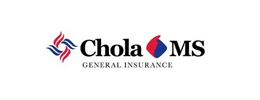Last updated on: September 19, 2025
Health insurance in India is a financial safety net that helps individuals and families cover medical expenses arising from hospitalization, surgeries, and other healthcare needs. With rising healthcare costs and increasing medical inflation (around 13% in 2025), having a health insurance policy has become essential for financial protection and timely access to treatment. It offers benefits like cashless hospitalization at network hospitals, tax deductions under Section 80D, and a wide range of coverage options including individual, family floater, critical illness, and disease-specific plans. Applying for health insurance typically involves choosing the right plan, submitting personal and medical details, undergoing medical tests if needed, and paying the premium either online or offline. Starting early ensures lower premiums, better coverage, and early completion of waiting periods.
We now live in a world where insurance is necessary in order to protect the health and well-being of yourself and your family and no area is more volatile than that of medicine in India. As the cost of healthcare is increasing and health risks are unpredictable, purchasing health insurance is not only a brilliant thing to do, but it is a safety net in your future. Whether you are fresh to health insurance or intend to change in 2025, this comprehensive guide will assist you to comprehend how health insurance in India can be applied, what to consider and the best practices on having an easy enrolment.
Health insurance is a financial product which reimburse your bill related to hospitalization, surgeries, and other health emergencies. With adequate health insurance cover, you do not need to fear huge hospital bills, costly medical procedures and emergency.
Expert Insight: Have you ever known? It is projected that in 2025, the medical inflation in India will be approximately 13 percent, way higher than normal inflation. Lack of health insurance can turn your financial status upside down even in case of brief hospitalization.
Comparison of several plans with the best coverage and value are important before you apply.
| feature | Individual Policy | Family Floater Policy |
|---|---|---|
| Who is covered | Individually | The whole family on a single sum |
| Suited to | Individuals who are health risk or elderly | Families in their early stage of life |
| Premium (at 10 lakh sum insured at 2 adults, 2 kids) | Rs 28,000 annually | Rs 20,500 annually |
| Claim impact | Covers the policy of the member only | Decreases coverage of others |
| Tax advantage | Rs 25,0001 (or 1 lakh in case of senior citizens) | As above |
Am I able to come with pre-existing conditions to be given health insurance?
Yes, but that will usually come with a waiting period of about 2 or 4 years before it covers such conditions.
Once you have chosen your plan you can either apply online or offline.
Expert Insight: Have you ever known? Under the IRDAI 2025 Agenda, every insurance company should provide easy online enrolment and paperless KYC to ensure that the process of purchasing of a health policy is fast and convenient.
What is the time duration required to approve health insurance policy?
In case there is no medical check, most of the online policies are accepted in 1 to 3 days. In case of medical examinations, it can be approved in one week.
What will the result be when I am unable to make my premium payment?
Should you fail to make payment the policy lapses after a grace period (usually 15-30 days). Renew the renewal in time to ensure that the coverage is continuous.
Will I be able to increment my health insurance sum insured after one year?
Yes, almost all the insurers permit you to upgrade the insurance cover once every time when you renew the cover but with new waiting period of higher coverage.
| Type of Member | Coverage | Premium (Rs/ year) |
|---|---|---|
| Individual of 35 years | 5 lakh | 7,200-9,000 |
| Family (30, 28 2 kids) | 10 lakh | 19,500-23,000 |
| Old age, 65 | 5 lakh | 24,000-36,000 |
Estimates, can differ depending on the company
Expert Insight: Have you ever known? Choosing a higher sum insured at an early age will ensure that one gets to pay a low premium throughout with some insurance companies.
In addition to the traditional policies, there is a number of new and revised options in 2025:
At what age should one get health insurance in India?
The best age to go is when you are in your 20s or early 30s because the premiums are the lowest and all the waiting periods on any future illness are also low.
Can Aadhaar card suffice in registering health insurance?
Aadhaar is usually accepted as one of the main forms of identity and address verification in most insurance companies.
What is the way to ascertain whether my hospital is on cashless network?
Go to the web page of insurer or call their customer care to view the updated list of network hospitals.
Do NRIs have the ability to purchase health insurance to their parents in India?
Of course, NRIs are in a position to purchase and remit the health insurance of parents in India.
Is Covid19 and pandemics health insured in 2025?
Yes, all regular and Corona Kavach policies must cover Covid or similar pandemics as per IRDAI rules.
What should I do to get health insurance reimbursement?
Within 30 days of treatment, provide the insurer with hospital bills, a discharge summary, prescribed medicine, and any of your policy papers.
Is it possible that I change my policy to a different insurer?
Yes, it can be transported; apply in advance 45 days prior to expiry and you will carry no-claim bonus and waiting period.
What can happen in case I get an illness once I take insurance?
Any disease occurred after buying a policy is normally covered instantaneously or following the initial 30 days waiting period.
Does it have only policies on critical illness?
Yes, free-standing critical illness policies provide lumpsum coverage when such critical illnesses as cancer, heart attack etc. are diagnosed.
Does the health insurance premium rise on annual basis?
At renewal, premium is likely to be raised on the grounds of age band, claims experience and medical inflation.
Is health insurance a requirement in India?
No it is strongly suggested to every one as healthcare costs are on the rise.












How could we improve this article?
Written by Prem Anand, a content writer with over 10+ years of experience in the Banking, Financial Services, and Insurance sectors.
Prem Anand is a seasoned content writer with over 10+ years of experience in the Banking, Financial Services, and Insurance sectors. He has a strong command of industry-specific language and compliance regulations. He specializes in writing insightful blog posts, detailed articles, and content that educates and engages the Indian audience.
The content is prepared by thoroughly researching multiple trustworthy sources such as official websites, financial portals, customer reviews, policy documents and IRDAI guidelines. The goal is to bring accurate and reader-friendly insights.
This content is created to help readers make informed decisions. It aims to simplify complex insurance and finance topics so that you can understand your options clearly and take the right steps with confidence. Every article is written keeping transparency, clarity, and trust in mind.
Based on Google's Helpful Content System, this article emphasizes user value, transparency, and accuracy. It incorporates principles of E-E-A-T (Experience, Expertise, Authoritativeness, Trustworthiness).